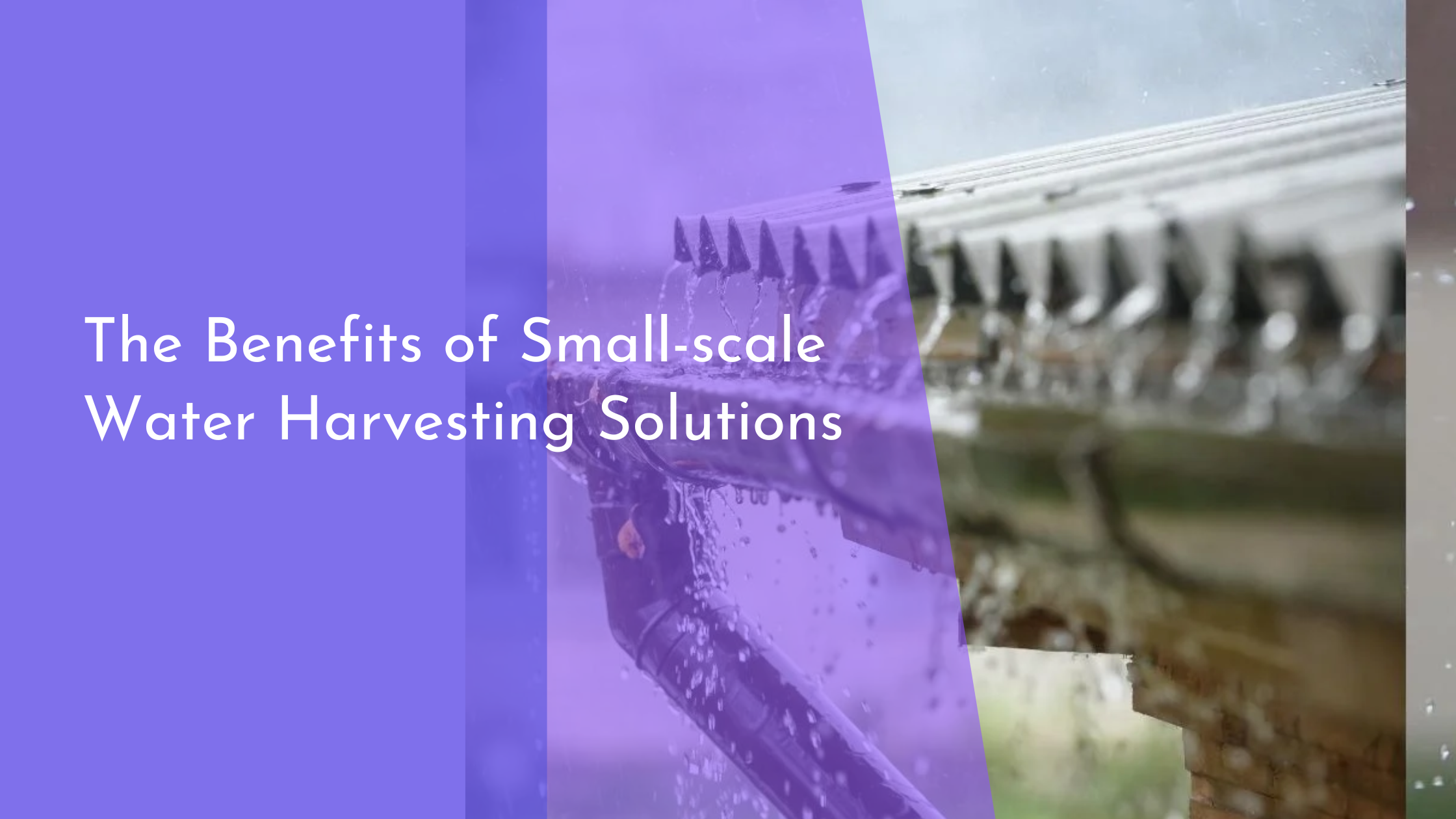The Benefits of Small-scale Water Harvesting Solutions
Water scarcity is a growing concern worldwide, and innovative solutions are needed to ensure sustainable water management. Small-scale water harvesting is emerging as a practical and effective method to address this issue. By capturing and utilizing rainwater and other local water resources, these systems offer numerous benefits to the environment, economy, and local communities. This article explores the advantages of small-scale water harvesting solutions and highlights the innovative technologies that make them increasingly accessible.
Understanding Small-scale Water Harvesting
Small-scale water harvesting refers to the collection and storage of rainwater or other local water sources at a localized level. This practice can be implemented through various methods, such as rooftop rainwater harvesting systems, small ponds, and even simple containers like barrels or tanks. The primary goal is to capture water close to the source and use it efficiently for household, agricultural, or industrial purposes. By doing so, communities can reduce their dependency on centralized water systems, which are often expensive and resource-intensive.
In addition to providing an alternative water source, small-scale harvesting systems can be customized to meet the specific needs of different communities. For instance, in arid regions, these systems can be designed to optimize water collection during short rainy seasons, ensuring a reliable supply throughout the year. Moreover, small-scale water harvesting encourages community participation and awareness about water conservation, fostering a culture of sustainability and self-reliance.
Environmental Advantages of Localized Water Capture
One of the most significant environmental benefits of small-scale water harvesting is its ability to reduce surface runoff and soil erosion. When rainwater is captured and stored, it minimizes the volume of water that flows over the land, decreasing the risk of erosion and the loss of valuable topsoil. This not only preserves the integrity of the local ecosystem but also enhances agricultural productivity by maintaining healthy soil conditions.
Furthermore, small-scale water harvesting can contribute to groundwater recharge, which is essential for maintaining the health of aquifers and other water bodies. By allowing captured water to slowly infiltrate into the ground, these systems can help replenish depleted groundwater reserves, promoting biodiversity and supporting plant and animal life. This process also reduces the strain on over-extracted water sources, making small-scale water harvesting a vital component of comprehensive water management strategies.
Economic and Social Benefits for Communities
Small-scale water harvesting systems offer significant economic benefits by reducing water costs for households and businesses. By providing an alternative to expensive municipal water supplies, families and entrepreneurs can allocate resources to other essential needs, such as education, healthcare, or business development. Additionally, the installation and maintenance of these systems often create job opportunities within local communities, contributing to economic growth and stability.
Socially, small-scale water harvesting empowers communities by fostering a sense of ownership and responsibility over their water resources. Access to a reliable water supply enhances the quality of life, reduces the burden of fetching water over long distances, and improves health and sanitation standards. Moreover, these systems can serve as educational tools, promoting awareness and understanding of sustainable water practices among all community members, from children to elders.
Innovative Technologies and Practical Applications
Advancements in technology have significantly improved the feasibility and efficiency of small-scale water harvesting solutions. For example, smart sensors and IoT devices can monitor water levels, usage, and quality in real-time, ensuring optimal management and maintenance of the system. These technologies not only enhance efficiency but also provide valuable data that can inform future water management policies and practices.
Practical applications of small-scale water harvesting are diverse and can be tailored to suit specific environmental and societal needs. Urban areas can benefit from rooftop rainwater harvesting systems that reduce demand on municipal supplies and alleviate pressure on drainage systems during heavy rains. In rural settings, small ponds and check dams can provide critical water resources for agriculture, livestock, and even small-scale aquaculture, boosting local food security and livelihoods.
Small-scale water harvesting solutions offer a multitude of benefits that address environmental, economic, and social challenges associated with water scarcity. By leveraging innovative technologies and community-driven approaches, these systems can significantly enhance water sustainability and resilience at the local level. As awareness of water conservation continues to grow, small-scale water harvesting presents an optimistic and practical pathway towards a future where water is managed wisely and equitably for all.



